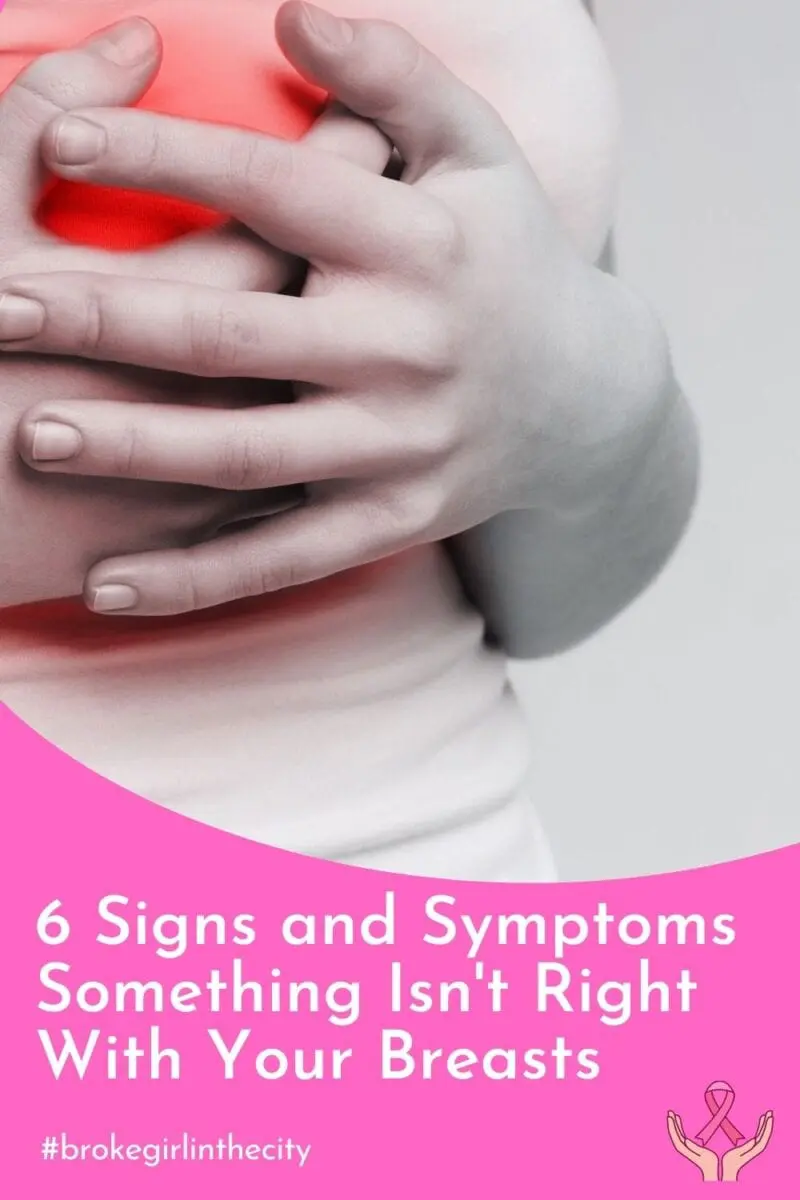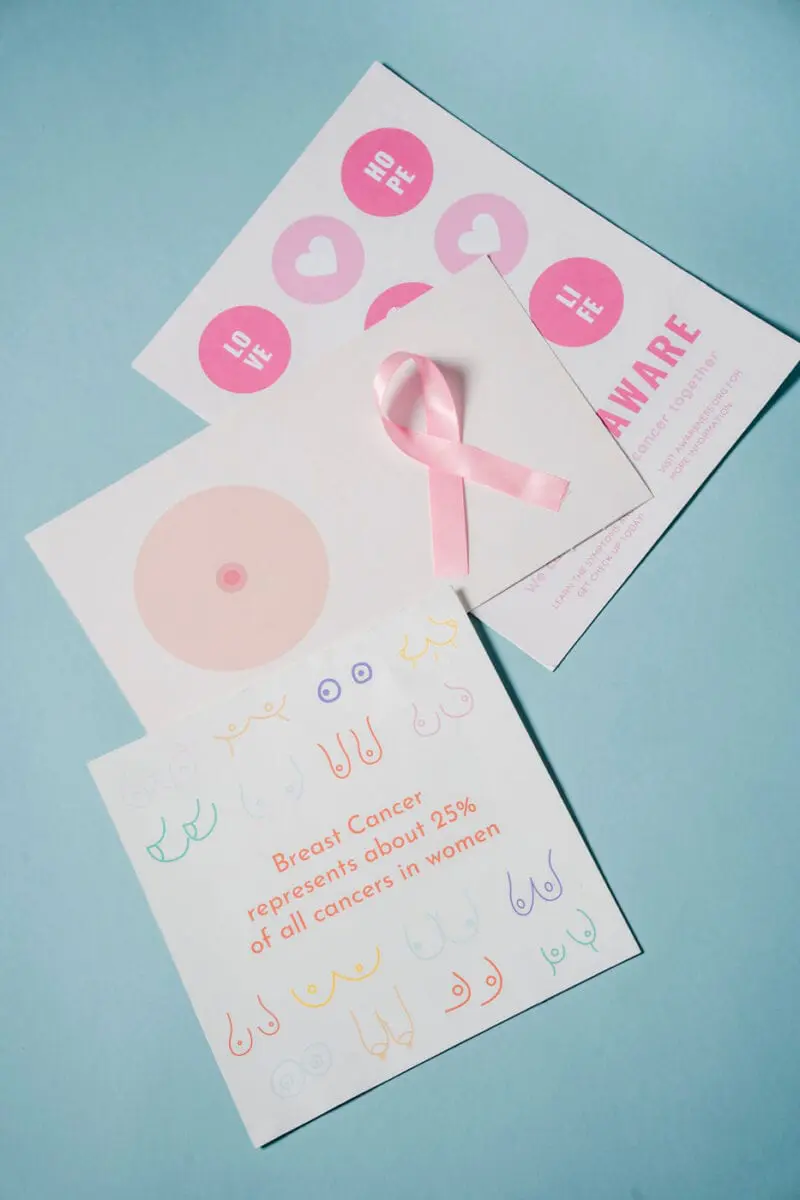
6 Signs and Symptoms Something Isn’t Right With Your Breasts
You probably don’t give your breasts much thought every day as changes can happen for a variety of reasons. Whether you have a period, you’re pregnant or breastfeeding, or you’re undergoing menopause, your breast will, indeed, vary in appearance. However, if you notice that they really look very different. Then you may have to ask yourself whether it says something about your breast health.
To make sure your breasts are doing fine, below are the six signs and symptoms that something isn’t right with this part of your body:
Breast Or Nipple Pain
Typically, there are several things that can make your breast or nipple painful such as when you have premenstrual syndrome (PMS), you’re pregnant or going through menopause. However, if you notice a persistent dull ache or sharp twinge on the nipple or the whole breast. It can be an indication that something’s not right with this part of your body. Thus, to make sure your breasts are fine, consult your doctor right away to avoid further health complications.
One Breast Is Bigger Than The Other
It’s totally normal for women’s breasts to vary in size. This usually occurs when they’re developing or when women gain or lose a significant amount of weight. However, if you find that one of your breasts is suddenly bigger than the other one without knowing why. It can be a flag that something’s wrong with it.
In most cases, asymmetry can be a sign of breast cancer because a large mass can make one of the breasts look bigger than the other. So, if you experience this sign and symptom. Then it’s best to get yourself checked as early as you can to prevent a more serious health condition. Remember, when a breast problem is detected early, more options for breast cancer treatment may be available to you.
Nipple Discharge
Generally, nipple discharge happens during pregnancy and breastfeeding, and it includes any fluid coming out from your nipple. Also, when you’re in menopause, you may also notice a milky-white discharge from both breasts, which is normal.
However, if you find the discharge bloody, clear, or greenish; affects only one breast, and it occurs without prodding. Then there may a problem with your breasts such as an infection, a cyst, cancer, or other lumps which are non-cancerous. To know what’s wrong, your doctor will conduct a physical exam and a mammogram to check inside the breast.
Bumps On Your Breast
Just like the variation in sizes, having bumps on the breast is normal as this is just one of the normal skin issues experienced by most women. These can include a sebaceous cyst or bumps around the nipple which are known as Montgomery’s glands.
But, if you find some itchiness, redness, or scaliness on your nipple or your breast, it can be another sign and symptom of a rare type of breast cancer, which is commonly called Paget’s disease. In such a case, schedule a consultation with your doctor to ascertain the problem and get proper treatment.
Nipple Retraction
Another red flag that you should be aware of is nipple retraction which is a common sign and symptom of breast cancer. This situation usually happens when the nipple starts to turn inward due to the mass growing inside the breast, causing its shape to change.
Therefore, if you notice some abnormalities on your nipple, call your doctor right away to know what’s going on with your breasts and if there’s something to worry about.
Armpit Pain
While armpit pain can be due to a muscle strain or swollen lymph nodes caused by a viral infection. It can also be a sign and symptom of a breast problem. So, if you feel extreme pain or swelling in your armpit and don’t know what causes it, it’s a good idea to see a doctor to know if it’s an inflammatory cancer that spreads from your breast onto your lymph nodes.

Visiting A Doctor And Doing Self-Exams To Determine Breast Problems
Now that you’re aware of some common signs and symptoms that something isn’t right with your breasts. Then it’s time to visit a doctor who’ll conduct a physical exam and assess the condition of your breasts.
In addition to visiting your doctor, it’s also a great idea to start doing self-exams to know if something is wrong with your breasts. While it may not be effective for all women, there’s still value in doing so as you get to know your breasts and their irregularities.
During the examination, your doctor may suggest performing some breast imaging methods such as a mammogram or an ultrasound to know what’s really going on with your breast. Depending on the results of these procedures. Your doctor may recommend a biopsy or refer you to a breast specialist to come up with an accurate diagnosis.
So, if you’ve decided to perform a breast self-exam, below are a few simple steps to take:
- Try to flatten the breast tissue as much as possible with your arm up over your head.
- Be sure you’re able to feel all of the breast tissues which includes the one under your arm.
- Be wary of anything that feels and looks different in your breasts, including lumps, change in size, skin issues, and many more.

The Bottom Line
Typically, the human body has its own way of letting you know if there’s something wrong with your health. The same specifically applies to your breasts which provide you with a variety of obvious signs and symptoms to warn you about a potential concern that should be shared with your doctor.
Because early detection is crucial for addressing breast-related health conditions. Most medical practitioners recommend that women know what these signs and symptoms are and how to detect them. By doing this, you can diagnose the disease before it has the opportunity to spread and affect other parts of your body.
